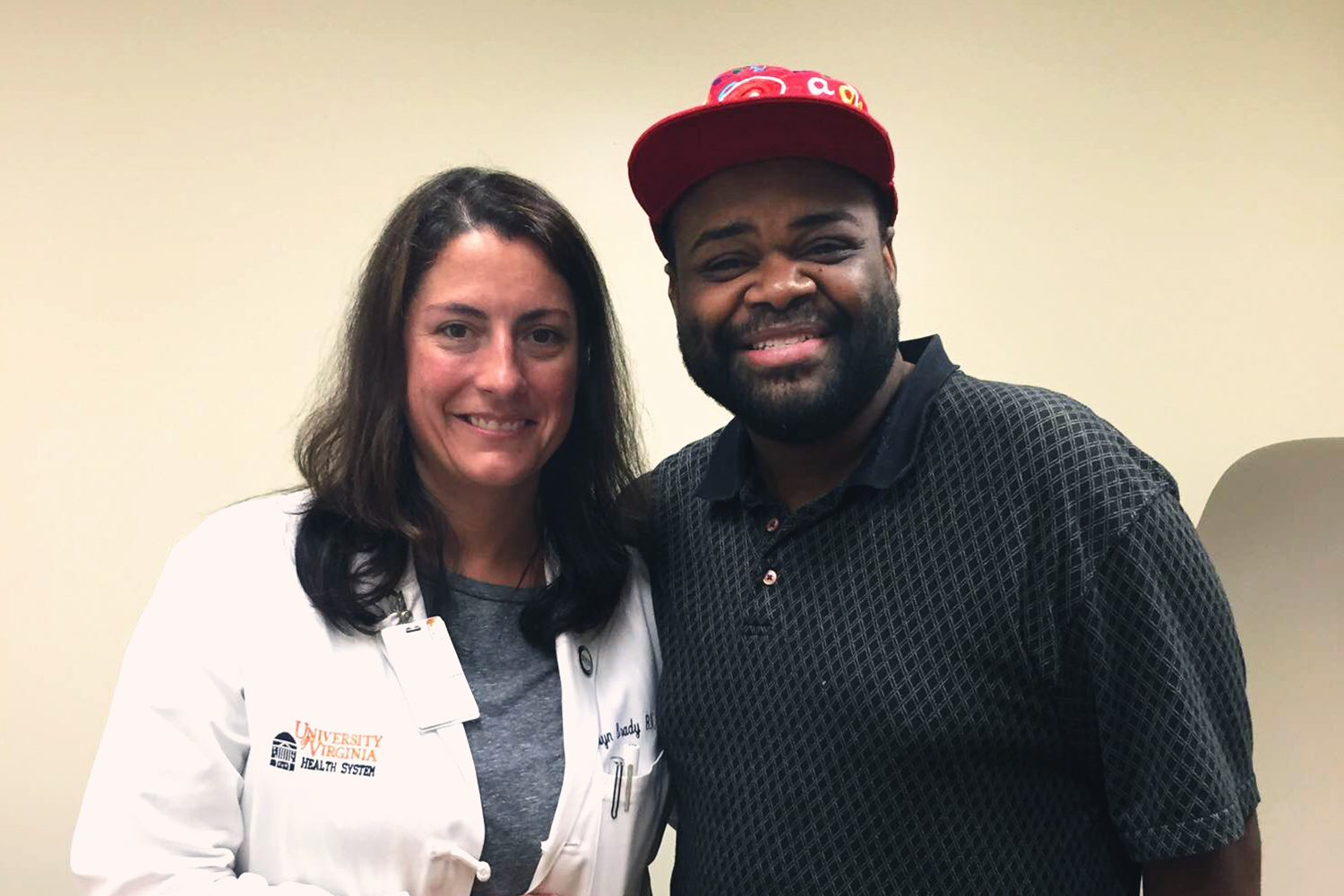Editor's note: Revised Sept. 19, 2016 with updated statistics in the sixth paragraph.
An innovative program for following up with heart failure patients at the University of Virginia Health System has reduced costs for both patients and the hospital and improved patient outcomes, researchers have determined.
The program costs roughly the salary of two nurse practitioners, but reduces costs by about 75 percent per patient within the first 30 days of discharge from the hospital, the researchers found.
UVA launched the “Hospital to Home” program for patients with heart failure in July 2010, after the implementation of the Affordable Care Act. The researchers analyzed its effects retrospectively, examining the records of approximately 5,000 patients.
The program features a home visit from nurse practitioners who meet with patients within four to seven days of discharge from the hospital to answer questions and adjust medications, if necessary.
“Patients and family members are grateful for the hour-long appointment with us and to have their questions answered,” said Nita Reigle, one of the nurse practitioners.
After 30 days of being discharged from the hospital, patients enrolled in the program had an adjusted 43 percent improvement in survival compared with patients not enrolled in the program. In addition, patients enrolled in the program had a 29 percent reduction in readmission days and a 32 percent reduction in readmission costs compared with patients not enrolled in the program.
“The study looked at all the patients who had been followed here,” said Dr. Timothy Welch, a medical resident and lead author of the study. Hospital to Home is “based off the premise that when people leave the hospital after an admission for heart failure, it’s very likely that they may be readmitted, and the more they’re readmitted, their mortality and costs go up.
“This program is so important to our heart failure patients because heart failure is the No. 1 reason for admission and readmission to the hospital. The H2H program helps to improve their lives and reduce the chance that they will be readmitted.”
Essentially, the program consists of two nurse practitioners with access to numerous resources, including dieticians, exercise physiologists and social workers.
“In the hospital, education may occur in a sporadic way, and often family members aren’t present because they are working during the day. Family members frequently come with patients to the H2H appointments and can ask questions that they didn’t get to ask while their loved one was in the hospital,” Reigle said
“Also, when patients and family members are home in a more comfortable and familiar setting, new questions can arise.”
Jason Dent, a patient enrolled in the program, spent two weeks in the hospital, one in the ICU and another in the step-down unit to undergo monitoring before returning home. After being discharged, he began the program, which helped him not only keep track of his medications and doctor appointments, but also helped him recover emotionally.
“Having to stay in the hospital for two weeks is difficult with the probing and exams and day-to-day bloodwork and X-rays. You get antsy and want to return home,” he said. “But everyone was supportive and treated me with respect and everything. … I’ve been blessed by the UVA family. From nurses to doctors to complete strangers, they’ve been there for me. From the CNAs to the RNs to the surgeons, everyone has treated me with respect.
“It’s amazing the support that I’ve gotten from UVA staff, and I’m blessed to be alive and grateful that I picked UVA hospital,” he said.
As a result of the program’s care, Dent was able to participate in Liberty University’s graduation exercises on May 14 in a wheelchair, receiving his master’s degree in human services counseling.
The study was a collaborative effort among Welch, Reigle, Dr. Sula Mazimba and Dr. Kenneth Bilchick. The research team is submitting its findings for publication in a scientific journal after presenting two abstracts at an American College of Cardiology meeting in Chicago.
Media Contact
Article Information
July 21, 2016
/content/uvas-heart-failure-follow-program-cuts-costs-improves-patient-outcomes

